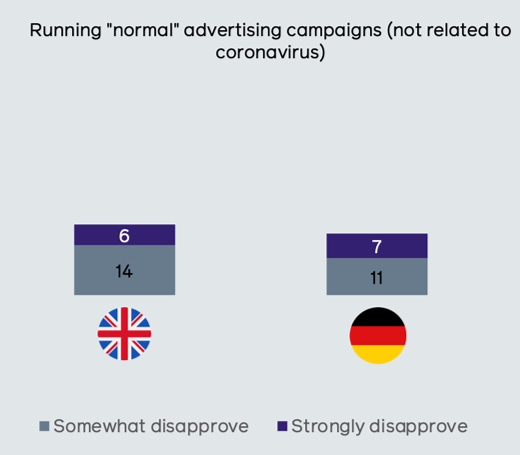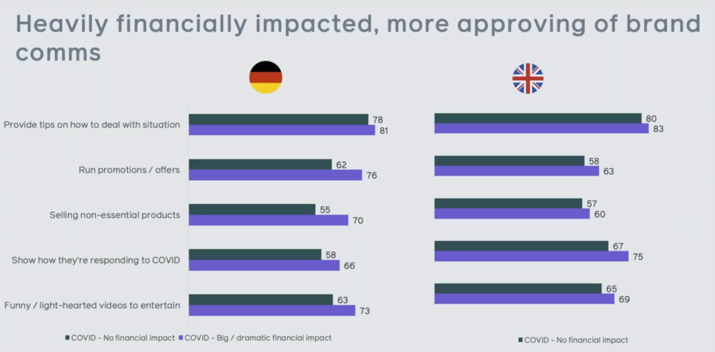Any change, even as severe as the current one, at some point reaches the status of a norm. According to some studies, we can officially announce that we are already in a new reality. The results of the Global Web Index study conducted in Germany and Great Britain demonstrate it, for example, by showing a definite change concerning advertising communication.

While in the first phase of the pandemic attitudes saying that brands should not focus on promoting their products prevailed, now (the study was conducted at the beginning of April) advertising “normal” (i.e. not pandemic) is unacceptable only 6% of UK residents and 7% of Germany. The results of this study also show that consumers are starting to expect different kind of ads: fun, promotional and unrelated to the pandemic. Interestingly, the most interested in these ads are those the most affected financially by the crisis. This may, of course, be related to their natural need to wind down and to more mundane interest in economically attractive offers.

Evidently, the stage of stay at home calls is over. Therefore, brands should first check what the consumers’ attitude towards different types of advertising is in different locations. Second, rethink your approach to communication. Third, start acting. The example of Procter & Gamble, which gradually increases expenditure on communication and records significant increases in sales throughout the pandemic, shows that the crisis is not a time to stay on the sidelines.
Source: GWI

